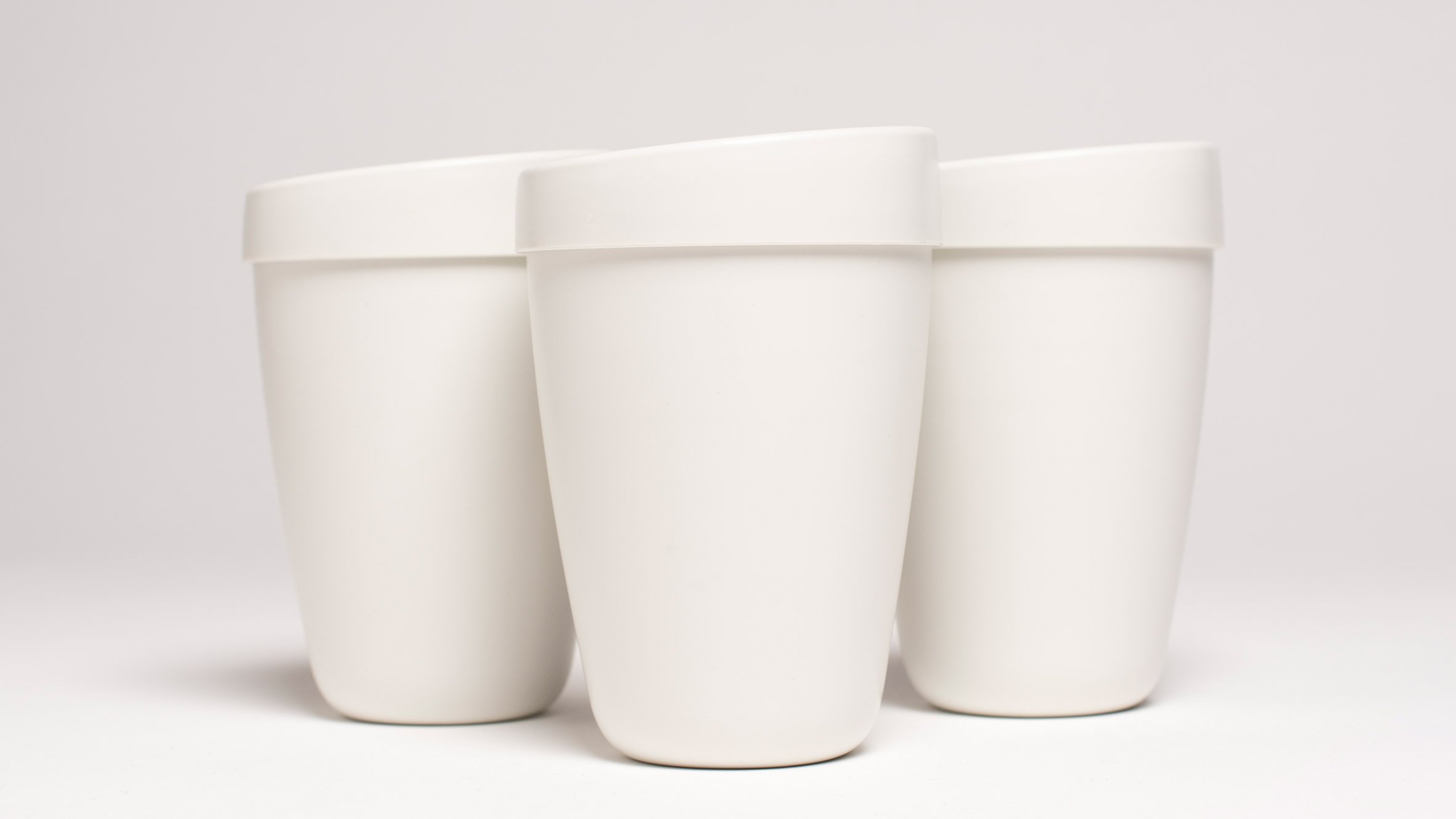
CupClub is an innovative returnable packaging service for drinks, that utilizes RFID technology to provide complete supply chain traceability. This report details a life cycle analysis (LCA) to determine the environmental benefits of CupClub in comparison to alternative single use 12oz paper coffee cups, a single use expanded polystyrene (EPS) cup and a ceramic reusable cup. The opportunity for CupClub and prospective customers is to understand the environmental benefits of a reusable and returnable, technology enabled cup across the lifecycle of the supply chain.
An estimated 5 billion coffee cups are used and thrown away each year in the UK and less than 1% of them are recycled1 . Moreover, the UK Government has published its 25 Year Environment Plan which although doesn’t explicitly mention a coffee cup taxation policy (often referred to as a (Latte Levy’) it does highlight that during 2018 they will be launching a call for evidence, seeking views on how the tax system or charges could reduce the amount of single use plastics waste. The current political climate and increased awareness of single use packaging items presents a good opportunity for CupClub to gain market traction.
The primary aim of this analysis is to calculate the comparative lifecycle impacts (Green House Gas emissions (GHG) expressed as CO2eq (Carbon Dioxide Equivalent) of the CupClub service and enabling technology (RFID) against various alternative coffee cup design including three types of paper cups -two PE lined and one PLA lined, expanded polystyrene (EPS) and a reusable ceramic cup. The CupClub analysis includes all lifecycle stages - materials, manufacturing, washing (water, detergent, water softener, rinse aid, drying), logistics, recovery and recycling. This utilises primary data from key suppliers, plus industrial ‘grey’ literature of paper coffee cup recycling in order to substantiate the comparative analysis.
CupClub cup is injection moulded from 49.3g of polypropylene and the lid from 22.03g of low density polyethylene. The RFID tag weighs less than 0.1g.
CupClub cups and lids are moulded in the West Midlands and delivered to Wimbledon for the pre-use wash and dry before being delivered to the clients. This study is based upon an initial delivery distance of 200km and an average delivery distance for washing the cups of 9.6km. The washing and location of the washing service are also part of the sensitivity analysis. The impact of delivery and collection of the cup and lid to the client includes a portion of the weight of the case used to distribute CupClub cups and lids. At the end of life CupClub cups and lids are collected and recycled. It is assumed that they will travel 200km to the recycler. The analysis also takes into account losses of cups and lids based upon the number of replacements needed if the cup and lid are not reused 132 times. This could be due to breakages and damage.







